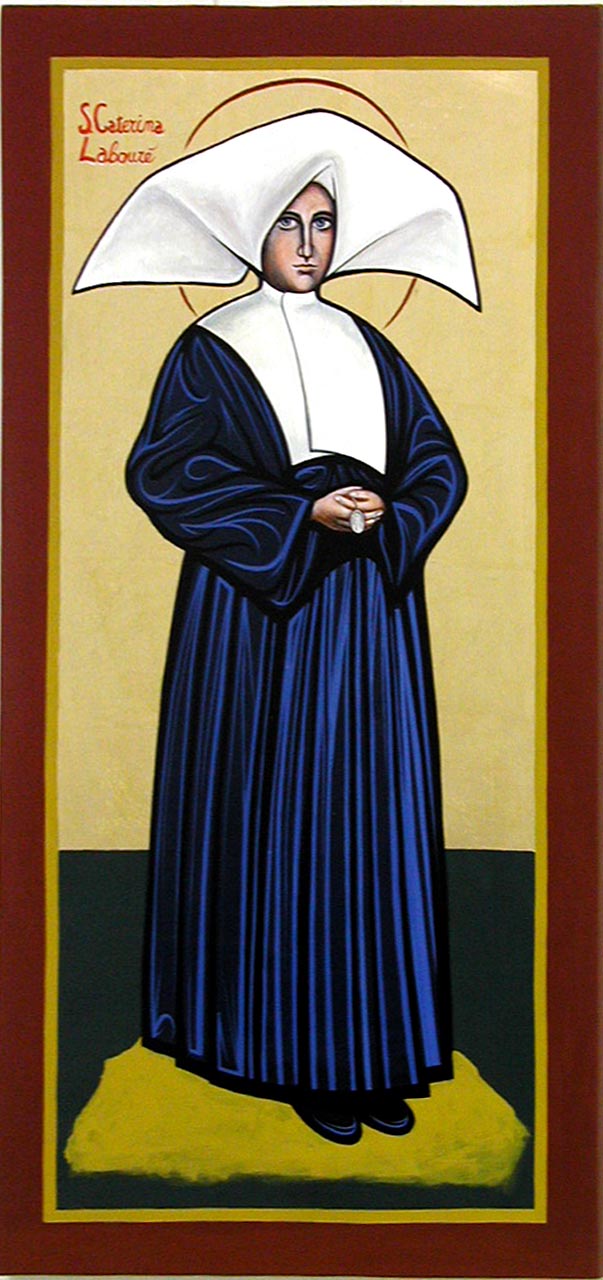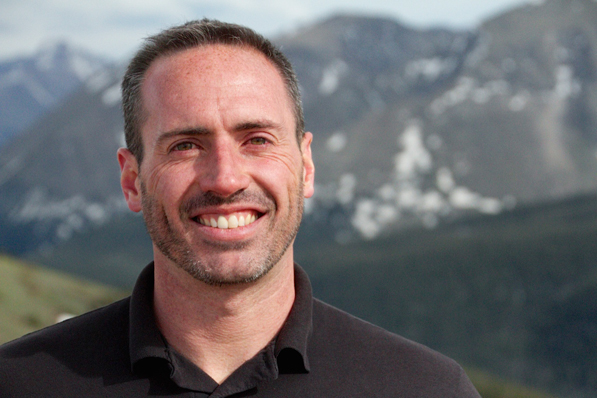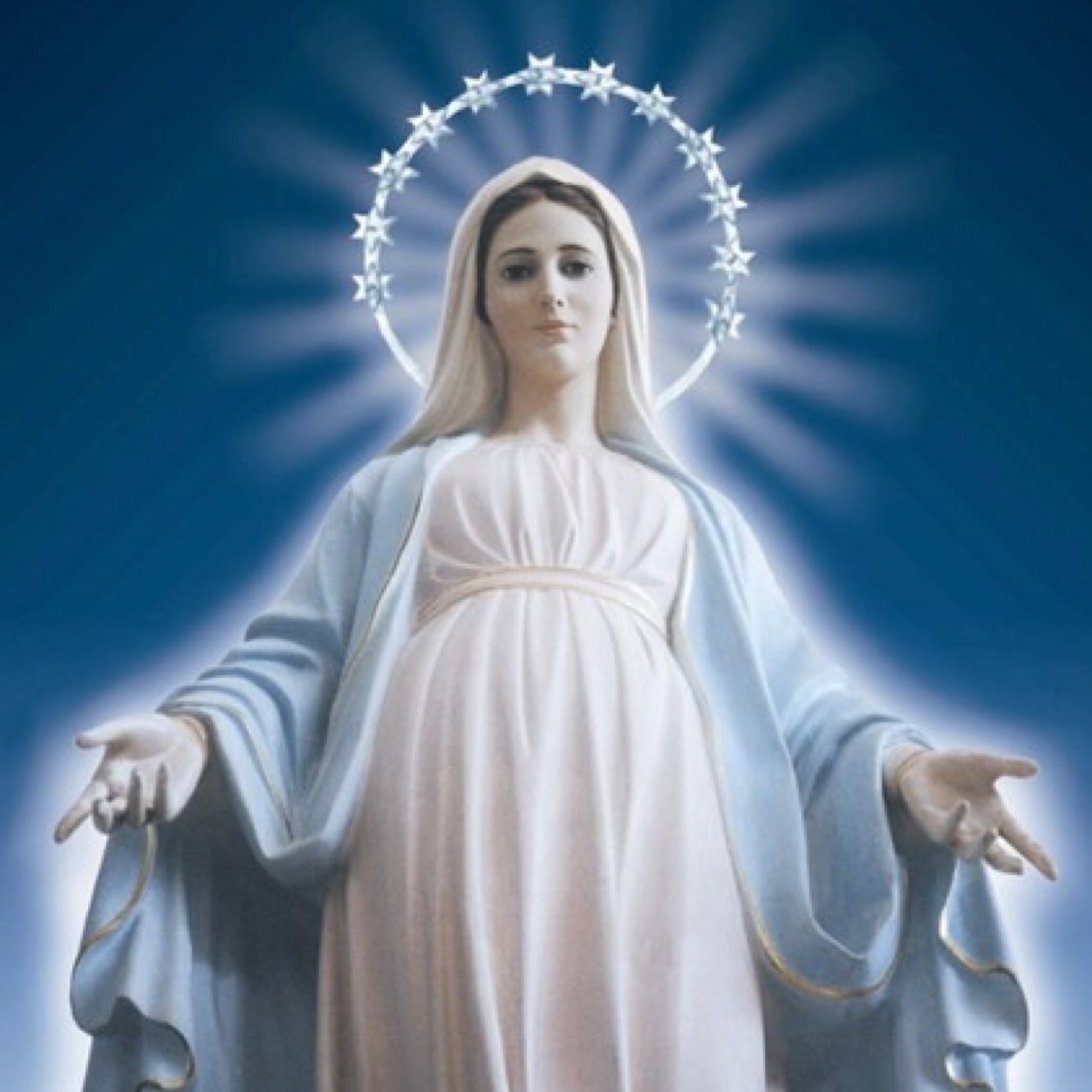
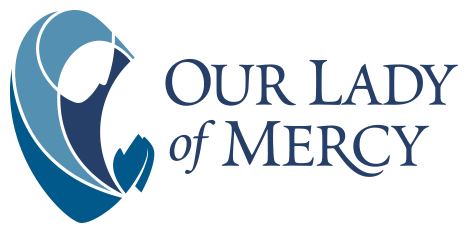
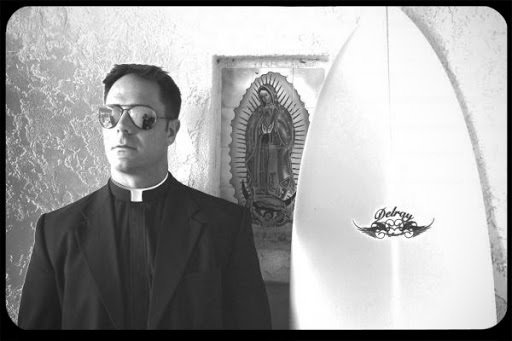
Remember, O most gracious Virgin Mary, that never was it known that anyone who fled to thy protection, implored thy help, or sought thine intercession was left unaided.
Inspired by this confidence, I fly unto thee, O Virgin of virgins, my mother; to thee do I come, before thee I stand, sinful and sorrowful. O Mother of the Word Incarnate, despise not my petitions, but in thy mercy hear and answer me.
Amen.
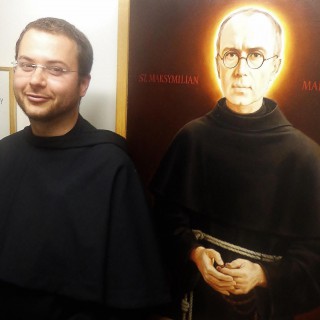
-by Br Daniel Klimek, TOR
“Heroine, cocaine, opium, marijuana, excessive alcohol, not to mention hallucinogenic drugs like mushrooms (psilocybin) and LSD – he consumed most of these before the age of 18, many before he turned 14, the addictions growing stronger as the existential emptiness deepened. What sounds like an introduction to a Hunter S. Thompson novel actually constitutes the autobiography of a Catholic priest. Fr. Donald Calloway of the Marians of the Immaculate Conception retells his dramatic and heart-wrenching life story in No Turning Back: A Witness to Mercy.
As a destructive youth, Calloway spent his adolescence succumbing to temptations large and small, from sins of the flesh with constant promiscuity, to crimes against the law with thousands of dollars of grand theft in stolen merchandise, as well as nightly partying with friends consuming all forms of drugs and addictives while listening to heavy-metal music.
At one point, Calloway became a follower of the rock band the Grateful Dead, inspiring entrance into a psychedelic culture which—among other things—left him with a big Grateful Dead tattoo on his arm. To this day he has it, as a remembrance of the past he lived. The past he left. To this day he doesn’t have a clue how that tattoo got there, being stoned to oblivion during the night of its implementation.
During his youth, Calloway was such an angry and rebellious kid that he names a chapter in his book “Animal” in describing himself, his early mentality, his vicious ways. His family (especially his parents) suffered great emotional trauma as a result of their son’s behavior. For a while, they lived on a military base in Japan, for Calloway’s stepfather was an officer. This didn’t last too long. Running around with Japanese gangs, stealing tens of thousands of dollars in merchandise—from electric guitars to cars—got young Donald Calloway arrested and deported from the country. He was escorted through the airport by military guards with chains and shackles around his hands and feet, while he spat at his captors and threw out verbal obscenities to surrounding pedestrians, angrily cursing his way onto the plane.
Although, like any angst-filled adolescent, Calloway developed a strong hatred for his parents—notwithstanding their efforts to help their struggling son, praying for him and checking him into rehabilitation facilities numerous times—a guilt-stricken consciousness still haunted him about his younger brother, where a stronger bond existed. Fr. Calloway describes his feelings poignantly:
“The only bond that I had left with my family was with my little brother, Matthew. When it came to him, I felt terribly, almost inexplicably conflicted. Ten years younger than I, he would often plead, ‘Brother, play with me.’ A part of me wanted to stay home and be the big brother I wanted to be and thought he needed. But I was so preoccupied with my girlfriends and drug buddies that I didn’t want to commit to anything domestic.”
After returning from Japan and checking into an ineffective rehabilitation clinic in Pennsylvania, things did not get any better. For years the drugs continued, so did the promiscuity, the theft, and another arrest. In terms of his growing addictions, Calloway describes vividly what a poisonous rabbit hole he fell into, hitting rock bottom in what reads like a distant and dreary space.
“On one occasion, I even found myself in a crack house, crawling around on the rug on my hands and knees looking for any cocaine that might have fallen on the floor. There were cockroaches running around and maggots in the sink from all the unwashed dishes. A crying baby could be heard, unattended in a back room. Yet there I was on the floor, right along with the baby’s mother, searching frantically for white specs on the floor. If we found anything white, we’d put it in the bowl and smoke it, even if we didn’t know what it was.”
So, what on earth could have turned this rebellious youth, this struggling addict, this “animal” (as he later described himself), into a devout Catholic priest, not to mention into an eloquent author of books on theology and Mariology?
It all began one night in March 1992 when, to the surprise of his friends, Donald decided not to go out partying, as was the usual routine, but to stay at home for the night. He felt immensely depressed, a longing and emptiness occupied his very being. “I found myself sitting there alone in my room with nothing to do and no one to turn to. My existence was laughable. My life was a waste, and I was hoping it would somehow come to an end…I hated my life. I was restless and anxious about everything.” Looking for a way to fill the time, he began browsing his parents’ bookshelf, not to find anything to read but, preferably, land on a National Geographic for the pictures. Instead, his hand landed on something else, an odd book about a subject so alien and obscure to the teenager that it was intriguing enough to read. The book was called The Queen of Peace Visits Medjugorje.
Essentially, it was the story of the Marian apparitions in Medjugorje which brought on the crisis of his conversion. He was only one of the first of a long line of Christians who were to fall under the spell of the mystical Bosnian village, embracing that land of mystery.
“This book showed me a side of things I had never really heard of or experienced before, but I certainly could relate to the radical nature of the message…It wasn’t long before I realized this book was presenting me an offer to change my life and surrender to something greater than myself – to believe in God and be different. It was a revelation that required a revolution in my thinking. Could this be the way out I was looking for?”
He spent the whole night reading the book, until the early hours of the morning. In the process, the inner beings of his soul were transformed from the anxiousness and restlessness he previously experienced to a deep serenity and peace that radiated and pervaded his spirit. The messages of Medjugorje touched him on a higher level, the return to prayer, peace, fasting, a reconciliation with God and the need for conversion. For the first time, something offered him hope from his abusive past, from his life of sin and despair.
“The Virgin Mary was saying things that were so clear and captivating that I found myself moved and literally experiencing emotion in a deep way. This was a kind of emotion I hadn’t experienced since I was a little boy who really loved his mother and wanted to make her happy. And yet the Virgin Mary was saying that she was my mother, that she was the mother of those who had gone astray and was calling us back to God, to Jesus. She made it clear that she was not God, but she was pointing to her Son and saying He is the Messiah, the Savior of the world. I found myself totally falling in love with this mother, this woman.”
The aesthetical quality was sublime. He was experiencing a beauty he hadn’t felt in a very long time. In this Woman, the Virgin Mary, he found a beauty that was not poisonous and sinful—like his past encounters with women—but pure and refreshing, an immaculate gentleness that offered a ray of hope and emanated a radiant light into Donald’s darkened world. Spiritual and sublime, this attraction led Donald to a small prayer of the heart, in which he revealed his longing for this mysterious presence in front of him.
“As I continued to read, I said to her in my heart, ‘I want to believe. I really do. You are piercing the little bubble of my world and offering me something more than I ever heard. I need this.’”
This inner need, this spiritual longing, was being satisfied. As he continued reading, a strange, but wondrous, rebirth from death to new life occurred. “Although I was in serious despair about my life, as I read the book, I felt as if my heart was being melted. I hung on to each word like it was transmitting life straight to me.”
Then a new day came. “Early in the morning, when I closed the book, I said, ‘The message in this book is life-changing. I have never ever heard anything so amazing and convincing and so needed in my life.’ One might say that this was my first prayer. Whoever this Virgin Mary was, I believed what she was saying – that she was my mother and came from heaven for me.”
Instantly, after telling his overwhelmed mother about the experience, Donald—though not a Catholic yet—ran off to Mass for the first time in his life, speaking to a priest afterwards, confessing his entire past to the man. When he came back home, Donald began throwing out all of his filthy possessions from his past life, from drug paraphernalia to pornographic magazines ranging from his Playboy and Penthouse collections, to his heavy metal records, and his water bongs and pipes. Six 30-gallon bags were the result.
After clearing his space of all distractions, Donald knelt by his dresser and deeply desired to go into prayer. But he didn’t know how to pray. As he recalls, “Until earlier that day, I had never said a prayer in my entire life.” This did not stop him, however, from falling into an overbearing ambiance of deeply healing and purifying tears. His past was still very prominent in his mind and the remorse, the regret that was felt was overwhelming – the need for forgiveness encapsulated his entire being.
“In fact, I started crying so hard that I could hardly breathe. I had to literally gasp for air because I was crying so uncontrollably. There were torrents of liquid coming out of my eyes. Before long, the clothes I was wearing were soaking wet.”
Hours of such excruciating crying led to inexplicable tears of joy and, all of the sudden, Donald felt an immense peace in his heart, a tranquility that surpassed understanding. “I started to feel almost bubbly and giddy, almost like a child being tickled by his father. Suddenly, I was animated. I had life again and felt so much different. My body tingled all over. I was so wrapped up in Jesus that I became aware of how much I was loved.”
This purifying peace led to something inexplicable, a mystical—if not downright supernatural—experience. Like thousands of patients who have reported undergoing near-death experiences, Donald left his body.
“But all of a sudden something below me and within me – this is very difficult to explain – knocked me out of my body. I literally felt as if I had left my body. My physical form remained on the couch, but my soul or spirit had left.” The experience paralyzed him, as he gradually saw his body farther and farther away from him, his spiritual presence being slowly removed from the physical. Out of desperation, he led out a penetrating, spiritual cry to that person who had just touched his soul. “Mary!” What happened next was phenomenal. Donald was “violently slammed back” into his body.
“After I got over the shock of the impact, a feeling of peace overwhelmed me, a peace that was tangible. Then I heard a voice, the most pure feminine voice I have ever heard and ever will hear. It was within me, it was outside of me, it was like liquid love being poured over me. It was pure maternal love. It said, ‘Donnie, I’m so happy.’ That’s all I heard, but I knew who it was. Nobody called me Donnie but my mother. Nobody. I knew this was the voice of Mary, the Blessed Virgin Mary. I was so at peace that I felt like a little boy snuggled close to his mother’s breast. I was so at peace, so loved, and so at rest that I went into a deep sleep. I hadn’t slept like that since I was a young boy.”
The phenomenon that Donald experienced, in addition to leaving his body, is called an interior locution (locution cordis), the mystical grace of hearing a spiritual presence – in this case, Our Lady – in an interior way through the depths of the soul.
After his profound spiritual experiences, an official conversion to Roman Catholicism followed. What also followed was the desire for the priesthood. Not just any priesthood. Donald wanted to become a Marian priest, both for Our Lady and for the reason that the Marians of the Immaculate Conception are the official promoters of the Divine Mercy devotions of St. Faustina Kowalska, the Polish nun and mystic who experienced visions of Christ in the 1930s. Donald saw himself, through his past, as the poster-boy for Divine Mercy. For, through the grace of God, he received the greatest mercy after a life of sin.
Becoming a priest meant going back to school. For this high school dropout, this wasn’t the easiest task.
Notwithstanding, through his subsequent education and efforts, Donald was able to encounter some of the most eminent Catholic intellectuals and scholars in the world. After earning his GED and spending some time in community college, the Marians sent Donald to study at the Franciscan University in Steubenville, Ohio, where he earned his B.A. in theology and philosophy. It was at Franciscan that he encountered some of his favorite professors, including the prominent Catholic intellectuals Scott Hahn and Mark Miravalle. Donald admits that Professor Hahn had an influential impact on his studies, implementing a deeper love of God in his mind.
Professor Miravalle, a theologian and Mariologist, is a leading figure in the Marian movement, and also played a great influence on Donald. Miravalle is the president of Vox Populi Mariae Mediatrici, a movement within the Catholic Church that hopes to gain papal approval to deem Mary as the Co-Redemptrix, becoming the fifth Marian dogma. Interestingly, Miravalle’s own connections to Medjugorje are not small. He has written numerous books on the subject and, when he was a doctoral student in Rome, his dissertation was called, The Message of Medjugorje: A Postconcilar Formulation of Lourdes and Fatima. The dissertation showed how the messages of Medjugorje align with Chruch tradition, ranging from the Gospels to the teachings of the early Church Fathers in their foundational elements and, of course, to Vatican II and other approved apparitions. The thesis was successfully defended in the Pontifical University of St. Thomas (Angelicum) in Rome in 1984.
Beyond inspirations like Professors Hahn and Miravalle at Franciscan, Donald went on to study with other greats. He received both his M.Div and S.T.B. at the Dominican House of Studies in Washington, D.C., and then earned an S.T.L. at the International Marian Research Institute in Dayton, Ohio. At the Institue, Donald studied with such prominent theologians and Mariologists as Fr. Luigi Gambero and Fr. Eamon Carroll. Most remarkably, Donald took the last class that the great French theologian and Mariologist Rene Laurentin taught at the Institute. Laurentin himself has been one of Medjugorje’s greatest supporters for years, with countless of books on the apparitions.
Donald’s S.T.L. dissertation concentrated on the Mariology in the diaries of St. Faustina Kowalska, combining his love for Our Lady with his love for the Divine Mercy devotions. The dissertation was over 200 pages long, contained over 700 footnotes – in Latin, French, Polish, Italian, and Spanish – and, years later, was published into a book called, Purest of All Lilies: The Virgin Mary in the Spirituality of St. Faustina. He even graduated summa cum laude with his S.T.L.
The former drug addict, convicted criminal, and high school dropout graduated summa cum laude with an advanced degree, studying with some of the most renowned theologians in the world, and publishing his work into a book about the Mother of God. Today, Father Calloway is the House Superior for the Marians of the Immacluate Conception and their vocations director. He preaches his story throughout the world, reaching countless of hearts. His life story is an example of grace and divine mercy in motion, through the intercession of the Blessed Virgin Mary and particularly her continuing work in Medjugorje. No Turning Back constitues a powerful and poignant testimony about one man’s journey, being led out of a tunnel of darkness and despair into the radiance of hope and belief in something purer, truer, and warmer than the temptations of contemporary culture – what the human soul longs for, spiritual sublimity and meaning in one’s existence.”
“Jesus said to her, “I am the Resurrection and the Life. The one who believes in Me will live, even though they die; and whoever lives by believing in Me will never die.” -Jn 11:25-26
Love,
Matthew

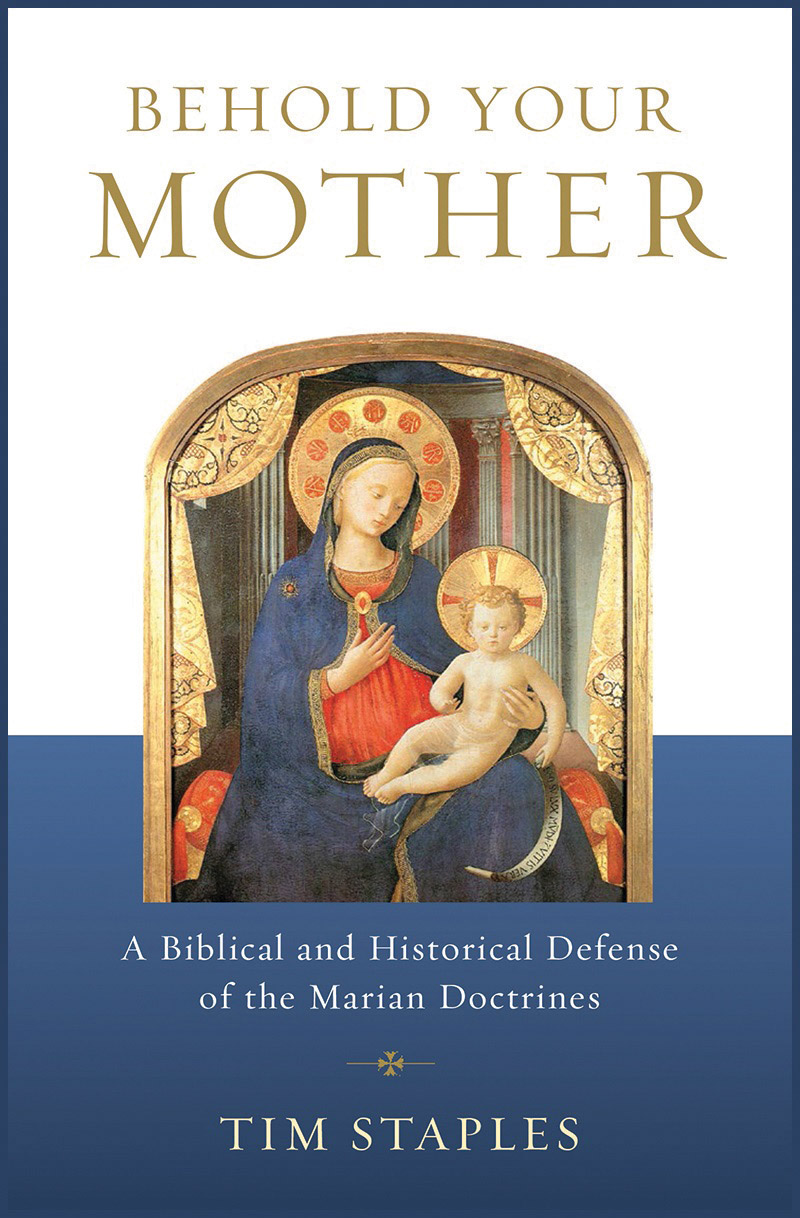



_-_Annunciation_-_Google_Art_Project.jpg)
